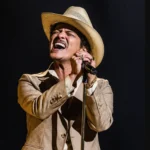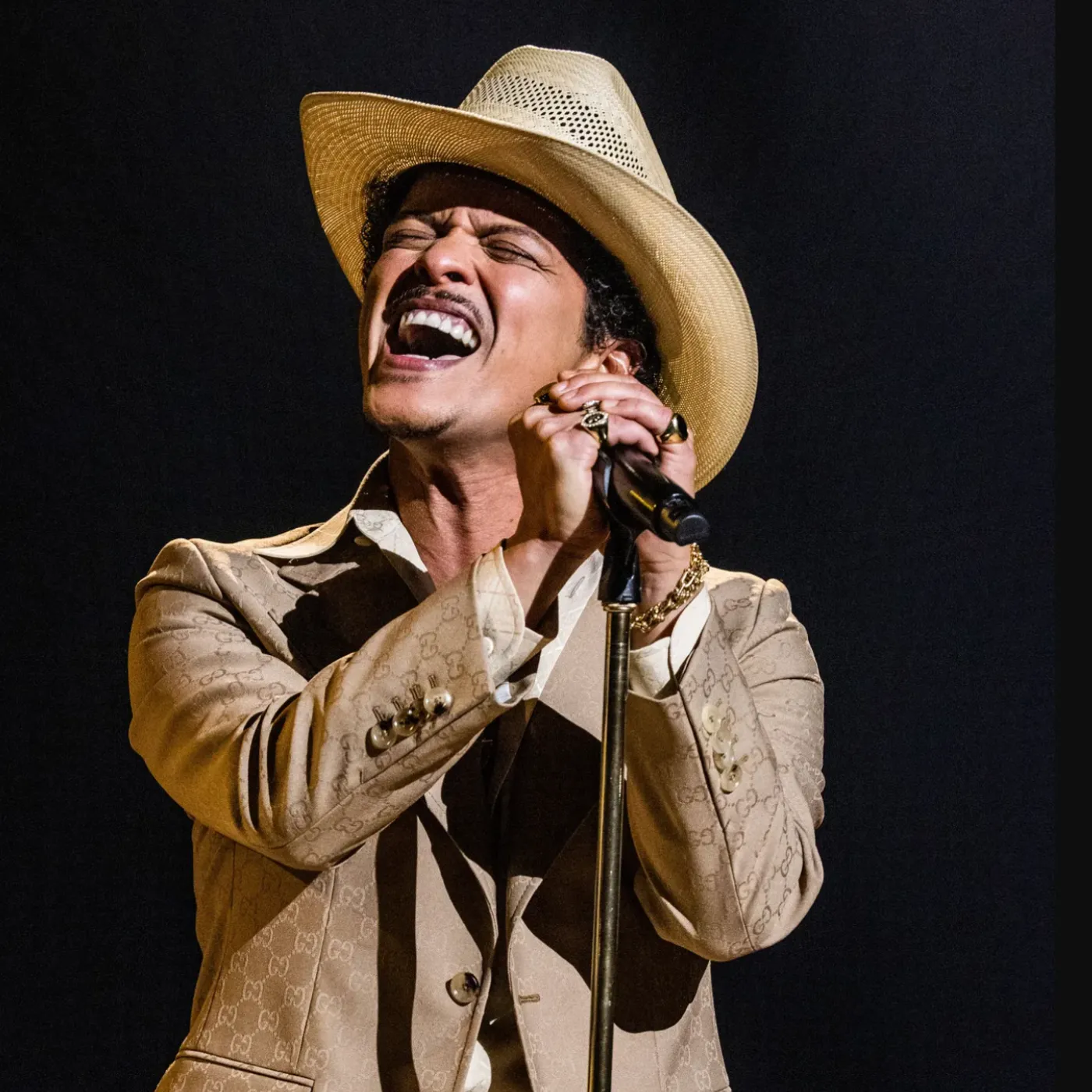
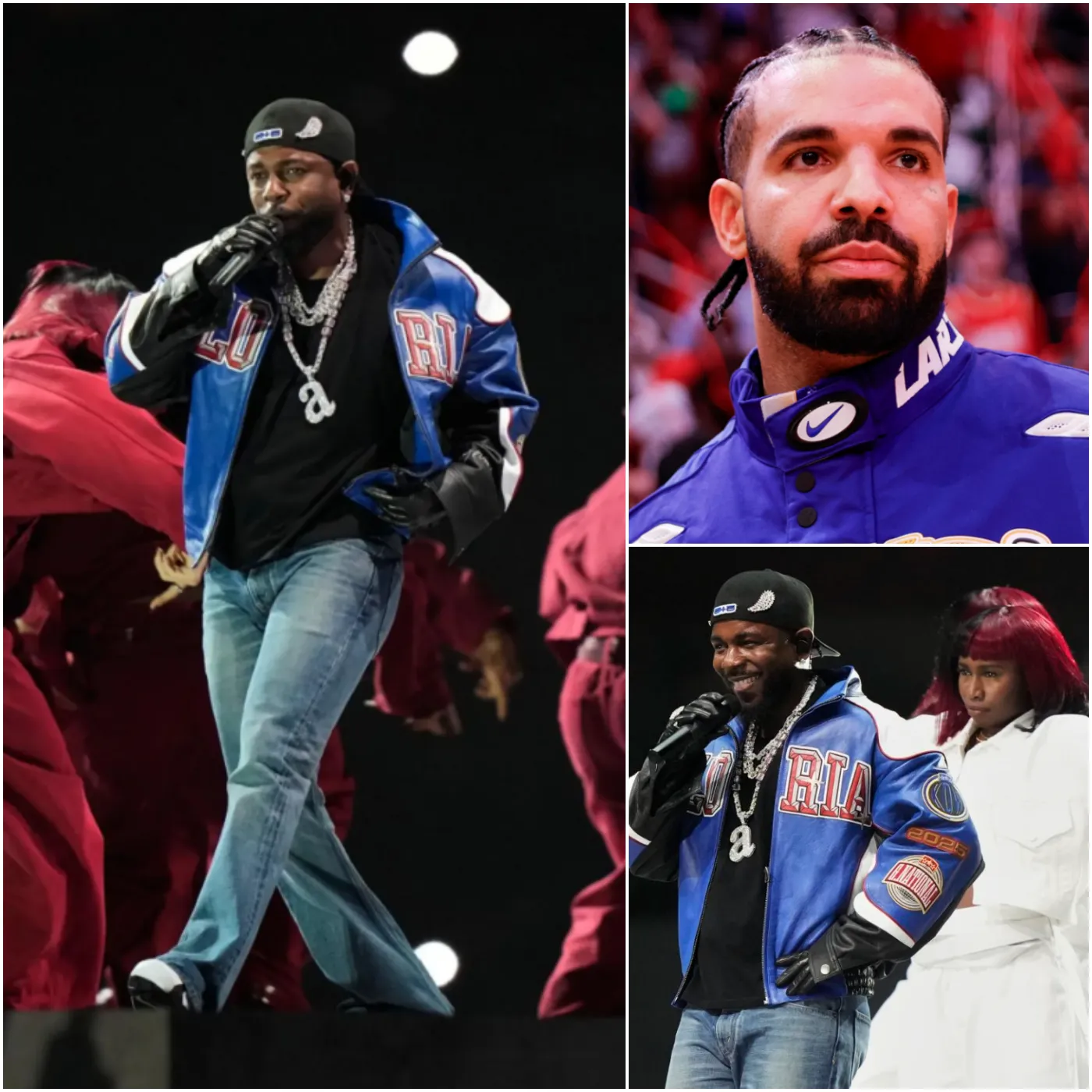
Kendrick Lamar’s Super Bowl Halftime Show: A Statement on Culture, Not Politics
Since Kendrick Lamar was announced as the Super Bowl LIX halftime show headliner, speculation swirled around how the Pulitzer Prize-winning rapper would approach the historic moment. As the first solo rapper to headline the event, expectations were high, and with his recent feud with Drake still fresh, fans wondered if his performance would reference the battle that dominated hip-hop in 2024.
By the time February rolled around, Lamar had already cemented his dominance with the Grammy-winning diss track “Not Like Us” and a defamation lawsuit tied to the song. Questions loomed over whether he would even be able to perform it. There was also curiosity about whether he would use the platform to make a strong political statement, as he has in past performances. But instead of addressing issues like police brutality or systemic injustice, Lamar had a different message in mind—one that was focused more on his cultural standing and ongoing battle with Drake rather than the broader political landscape. Since Kendrick Lamar was announced as the Super Bowl LIX halftime show’s headliner last September, music fans have been abuzz with excitement, wondering how the Pulitzer Prize winner would handle the historic gig — the first for a solo rapper.
A Performance Fueled by Feud, Not Politics
Historically, Lamar has used major televised moments to tackle social and political issues. He made headlines with his 2016 Grammy Awards performance, where he highlighted mass incarceration, and his 2015 BET Awards set, which referenced police brutality. With the 2024 election cycle heating up and Donald Trump attending the Super Bowl—marking the first time a sitting president had done so—many expected Lamar to use the opportunity to send a pointed message.
However, rather than revisiting politically charged tracks like “Alright” or “The Blacker the Berry”, Lamar opted to showcase his latest work from GNX, an album that serves as a victory lap following his Drake feud. His setlist included “Squabble Up,” “Peekaboo,” “TV Off,” and “Luther”, tracks that have been dominating streaming platforms since their release. He even brought out SZA to perform their hit collaboration “All the Stars” from the Black Panther soundtrack, ensuring a mainstream appeal while keeping the focus on hip-hop dominance rather than political messaging.
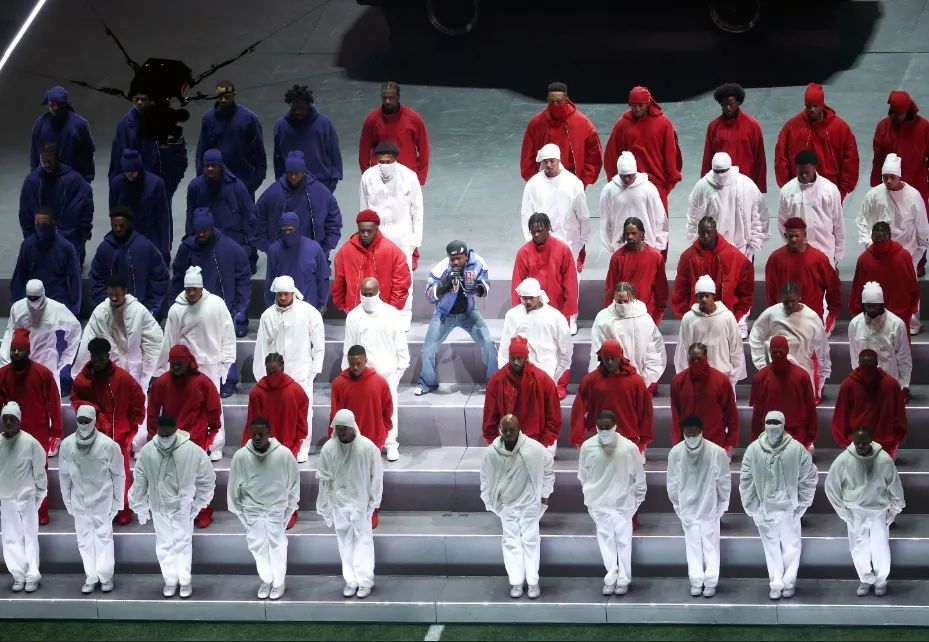
A Subtle Yet Bold Statement
While Lamar sidestepped a direct political stance, his performance wasn’t devoid of symbolism. The opening sequence featured backup dancers in red, white, and blue hoodies, stepping out of a Buick GNX—a nod to the American Dream and his own success story. The stage itself was designed as a game of tic-tac-toe, symbolizing the strategic navigation required to maintain influence in the industry.
Actor Samuel L. Jackson, dressed as Uncle Sam, made multiple appearances, serving as both an emcee and a representation of the expectations placed on Black artists. At one point, Jackson addressed Lamar directly, stating, “Mr. Lamar, do you really know how to play the game?” before urging him to “tighten up”, reinforcing the constant tension between authenticity and commercial appeal.
The Ultimate Jab at Drake
Despite avoiding political controversy, Lamar’s performance was filled with references to his high-profile feud with Drake. He performed both “Euphoria” and “Not Like Us”, the latter being the most anticipated moment of the night. As he delivered the song’s infamous lyric, “tryna strike a chord and it’s probably A minor”, the crowd erupted. Adding to the spectacle, Lamar wore a noticeable lowercase ‘a’ necklace, a clear jab at Drake’s alleged use of ghostwriters.
Even more pointedly, Serena Williams, a longtime figure in Drake’s lyrics and rumored past relationships, was seen dancing on the field during the performance. The moment wasn’t lost on fans, who quickly took to social media to interpret the move as another calculated hit against the Toronto rapper.
Right-Wing Backlash: MAGA Reacts
Despite its lack of direct political messaging, Lamar’s halftime show still drew criticism from conservative pundits. Figures like Matt Gaetz, Jack Posobiec, and Eric Daugherty were quick to label the performance as part of the “woke agenda”, with some calling it the “DEI halftime show”. The backlash mirrored previous conservative responses to Lamar’s music, as seen in 2015 when Fox News denounced “Alright” as an anthem for anti-police sentiment.
But for all the outrage from the right, there was little concrete political content to critique. This only served to highlight the irony of the criticism—Lamar’s performance wasn’t an attack on conservative America but rather a reflection of hip-hop’s evolving power dynamics.
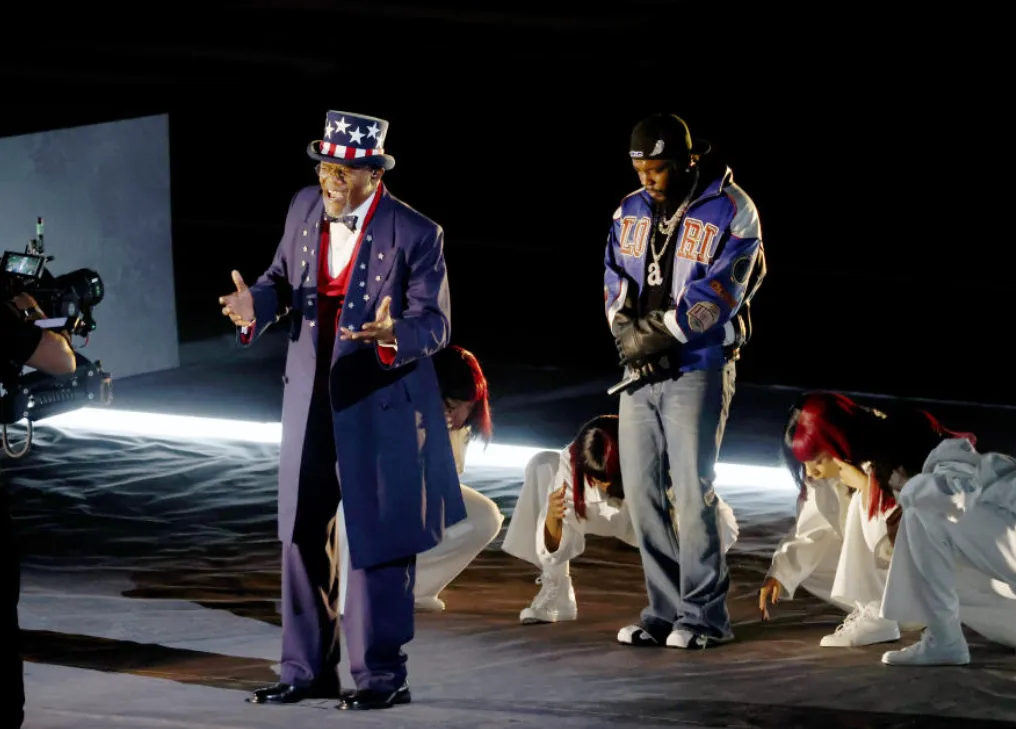
Kendrick’s Artistry: Playing the Game on His Terms
Lamar’s decision to avoid overt political statements doesn’t mean he played it safe. If anything, his performance challenged the expectations placed upon Black artists to always be activists first and entertainers second. While past performances have seen him use his platform to spotlight racial injustice, his Super Bowl show suggested that simply being a Black artist at the top of the game is, in itself, a statement.
As Samuel L. Jackson’s character challenged Lamar, the underlying question remained: Can Kendrick truly navigate the industry’s pressures while maintaining his authenticity? His setlist choice, his symbolism-heavy performance, and his focus on hip-hop’s internal battles all suggest that his response is clear: he will play the game on his own terms.
The Impact and What’s Next
With the GNX tour kicking off in April, Lamar’s Super Bowl halftime show served as a major promotional moment for the album. His continued chart success, combined with the ongoing Drake rivalry, has only cemented his status as the most compelling figure in hip-hop today. The performance ensured that the conversation around Kendrick vs. Drake remains at the forefront of the genre, proving once again that Lamar knows how to control the narrative. Kendrick Lamar’s Super Bowl Halftime Show: A Statement on Culture, Not Politics
In an era where artists are often expected to pick a side politically, Kendrick Lamar made a different kind of statement. He reminded everyone that while politics may be important, the power struggles within hip-hop are just as significant. And in the battle for hip-hop supremacy, Lamar just delivered another game-changing move.
